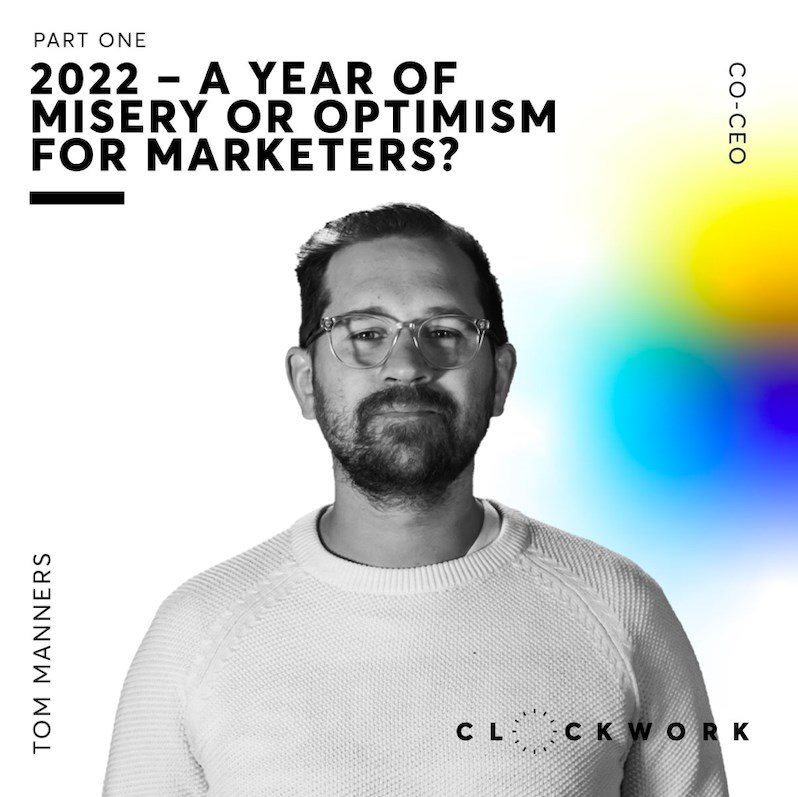"It was the best of times, it was the worst of times, it was the age of wisdom, it was the age of foolishness, it was the epoch of belief, it was the epoch of incredulity, it was the season of light, it was the season of darkness, it was the spring of hope, it was the winter of despair." - Charles Dickens, A Tale of Two Cities.
Who knew that 163 years later, this quote by the great English author relating the conditions leading up to the French Revolution would so accurately reflect the setting in which we find ourselves at the end of 2022? It has certainly felt like a year of two halves. Time has swung by on a pendulum of ambivalence, indiscriminately oscillating between gloom and hopefulness. As marketers, we often find ourselves on the bleeding edge of extreme developments; we’re the first to notice the change and often the first to feel its effects. As South Africans, this reality can feel even more acute as we dodge loadshedding, celebrate the arrest of corrupt officials, commiserate over inflation and cheer on our sports teams.
As a ceaseless optimist, however, I thought it might be an interesting thought experiment to review a handful of 2022’s most significant developments and to try make sense of them in the context of our world. Are there shreds of hope that we can cling to, or are things really as bad as they seem? Let’s explore.
Loadshedding
South Africa has experienced more days of loadshedding in 2022 than any year before. I have stopped counting, but I am quite certain that, at the time of writing, we have suffered intermittent power supply across the country for over 100 days.
There is no need to relate why this is bad news, but it is. It’s bad news for business, bad news for the GDP, bad news for education, and bad news for social safety and cohesion. Still, some ministers in government appear to have their heads in the sand, spouting the need for coal or exhorting the values of nuclear.
We are in a right pickle, to be fair, but there may be light (ahem) at the end of the tunnel.
2022 has also seen government do away with the cap on privately funded power production. This has (and will) lead to a string of renewable IPP investments, which will bring electricity and jobs to South Africa. Trends analyst JP Landman has studiously estimated that we will be rid of loadshedding by 2025 and the spearhead of this development will be green and privately funded.
Why is this good news for marketers?
Much as the landing of the Seacom fibre cable in 2009 led to an explosion of investment in wholesale and last mile fibre, so the advent of private power generation will lead to a new market of growth for South African businesses. We are already seeing it in the proliferation of residential solar offerings.
This will result in a battle for brand recognition, giving rise to opportunities for local advertisers and marketers to strategically position these startups by driving acquisition, recall and reputation. A new market is being born right before our eyes, and I find it tremendously exciting.
The media and Musk’s Twitter
South Africa has always had a sturdy independent media fraternity. The ability to speak truth to power and to provide factual and objective analyses is an absolute keystone of our democracy, and fortunately, it has remained largely intact.
Sadly, 2022 has seen the intensification of downward pressure on legitimate journalism. From Iqbal Surve’s strategic decimation of the Independent Media Group into nothing more than a twisted RET mouthpiece, to dwindling newspaper and magazine circulation as well as a lack of a unified and effective paywall mechanism for real news, publishers are under immense pressure.
This has led to smaller newsrooms staffed by overworked journalists, making it harder to deliver the kind of investigative reporting that makes people sit up and question government and big business.
Simultaneously, public perception of Elon Musk’s recent purchase of Twitter is intensely negative. Driven largely by Musk’s own childish antics, there is a real concern that the platform will devolve into a cesspit of ‘free speech’ lorded over by racists and extremists.
Twitter is one of the largest news aggregators in the world. At a time where South African journalism is under strain, it hardly seems helpful that its future seems uncertain.
Why is this good news for marketers?
Well it isn’t, yet. In fact, it’s bad news in the short term. We have already seen major brands such as Ford and General Motors pull back from the platform.
Musk’s $8 monthly Twitter Blue service could be the platform’s saving grace. Most of the analysis of this move has been negative and centred in complaints about the cost of verification, but his explanation of the concept is telling in that it could become a 'paywall bypass for publishers willing to work with us' and could 'give Twitter a revenue stream to reward content creators'.
It’s a recurring revenue service, like Amazon Prime or YouTube Premium, that could improve moderation on the platform and extend a lifeline to publishers and creators to get paid for their content from a central source. That is massive.
It might also present an opportunity for brands to sell products directly via Twitter through a revenue share agreement (much as Apple does currently on its App Store). Lest we forget, Musk was a PayPal founder and has been vocal about his ‘X App’ for everything. Expect payments to form an integral part of Twitter’s future. If successful, it could open up a new world of opportunities for marketers while also bolstering the media fraternity, growing newsrooms and giving public relations a new lease on life.
This is the first article in a series. Check back next week for Part 2.











































